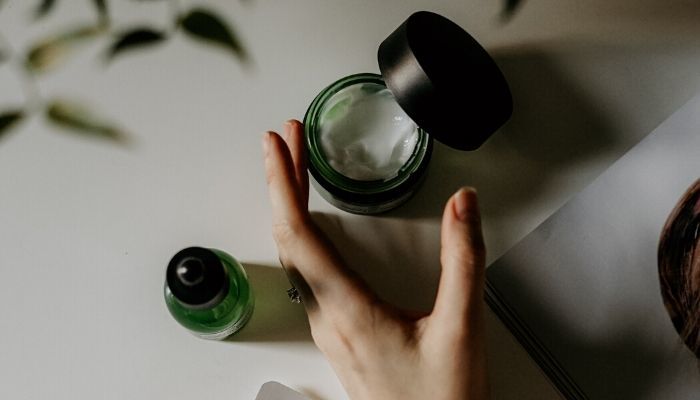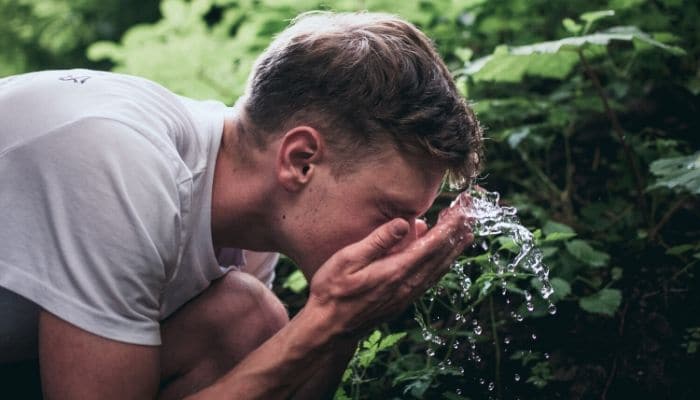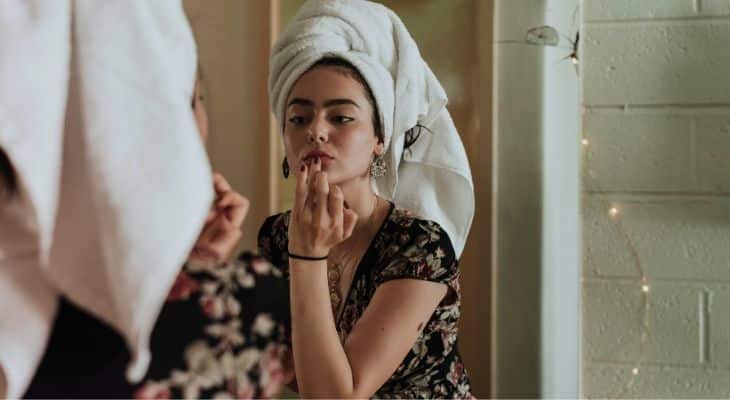Why Green Skincare is Good for Customers, and for Business
Natural skincare is big business, and growing larger every year. Discover why, and what it means for the beauty industry and the Australian brands that have already “gone green”.
Plastic has become something of a dirty word recently, with 92 per cent of Australians saying they’re concerned about how the pollution it causes is impacting the environment. And for good reason: every minute, one rubbish-truck’s worth of plastic gets dumped into the ocean. So what does that mean for the skincare and cosmetics industry?
But we’re not just fed up with its impact on the environment. More and more of us don’t think plastic derivatives, as well as a whole lot of other synthetic chemicals, belong in the products we put on our skin, either. And when you consider that the average woman’s beauty and skincare routine involves between nine and 15 products, giving around 500 chemicals the opportunity to wind up on their skin each day, it makes sense. Especially when you also consider that the body absorbs up to 64 per cent of anything that’s applied to its surface.
The natural, synthetic-chemical-free beauty and skincare industry is booming, according to research conducted by peak industry body Australian Organic. According to its latest market report, the organic skincare and cosmetics category enjoyed the strongest gains in purchase participation in a field of 18 categories, with 37 per cent of households making an organic skincare purchase in 2018, compared to just 22 per cent in 2016.

What’s Driving the Shift?
Awareness is the obvious answer, no doubt fuelled by watershed events such as when the US Food and Drug Administration discovered in 2012 that 400 lipsticks from 30 popular cosmetics brands all contained small amounts of lead.
“Consumers are much more aware of the health credentials of the food they’re eating, and are willing to pay extra for organic, natural produce, because they feel it’s better for their health and wellbeing,” says Lanae Scobie, director of natural skincare brand Harvest Garden.
“This awareness has rubbed off onto the products that people are prepared to put on their skin, with more and more consumers seeking skincare options that are free from harsh chemicals that not only get absorbed into the bloodstream, but also leech into our waterways and soil, to harm our planet.”
Sensitive skin, and the growing number of people who say they’re living with it, may be another answer. It’s something Scobie can relate to. “In my early 20s, I had really bad skin – pimples, rosacea, pigmentation, sometimes oily, sometimes dry. I tried every store-bought product I could find but while my skin would start showing signs of clearing up for a week or two, then it would flare up again.
“I decided to ditch the toxic products and searched for natural solutions instead. Ultimately it took me on a journey of not only seeking out natural skincare products, but 15 years down the track, establishing Harvest Garden.”
A Worldwide Trend
While the Australian organic skincare and cosmetics market is currently worth $356 million and growing at about 16 per cent per year, in the US, natural skincare alone achieved US$1.6 billion ($2.37 billion) in sales in 2018. Not only was that a 23 per cent increase on 2017 figures, it accounted for more than a quarter of the year’s total skincare sales.

That’s a big market share in anyone’s language. And with 53 per cent of consumers saying that seeing ‘all natural’ on a beauty label is moderately or very important, and 46 per cent of them willing to pay more money for it, it’s only likely to grow bigger.
The Future for Local Brands
The ever-increasing size of both the local and overseas market is exciting for businesses like Harvest Garden – but, like a lot of brands that spotted a genuine need years ago, it’s got a firm foothold already. “My honey and oatmeal soap was the first product I ever created, and because my family and friends loved it, I started doing local markets. That’s when I realised I wasn’t the only one who found it hard to find safe, natural and affordable skincare – hundreds of other people did too.
“That’s how Harvest Garden began – because of a genuine belief in natural skincare and a passion for creating it to help people achieve nourished, healthy skin without the need for harsh chemicals and toxins.”
Today, Harvest Garden produces everything from face masques, cleansers and moisturisers to body scrubs, lip balms and of course, soaps. As well as its thriving online business, Harvest Garden is stocked in more than 300 stores around the country. “We’re not a passing fad or cashing in on the latest trend,” says Scobie. “We’ve been here for a while, and we’re not going anywhere.”
Stock your shelves with the latest in natural and organic skincare at the Naturally Good Product Directory.
-
Enquire!
- Book a stand
